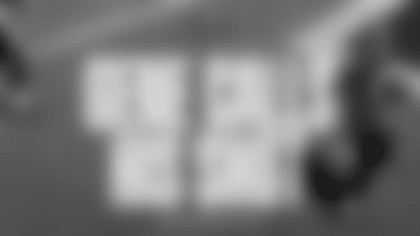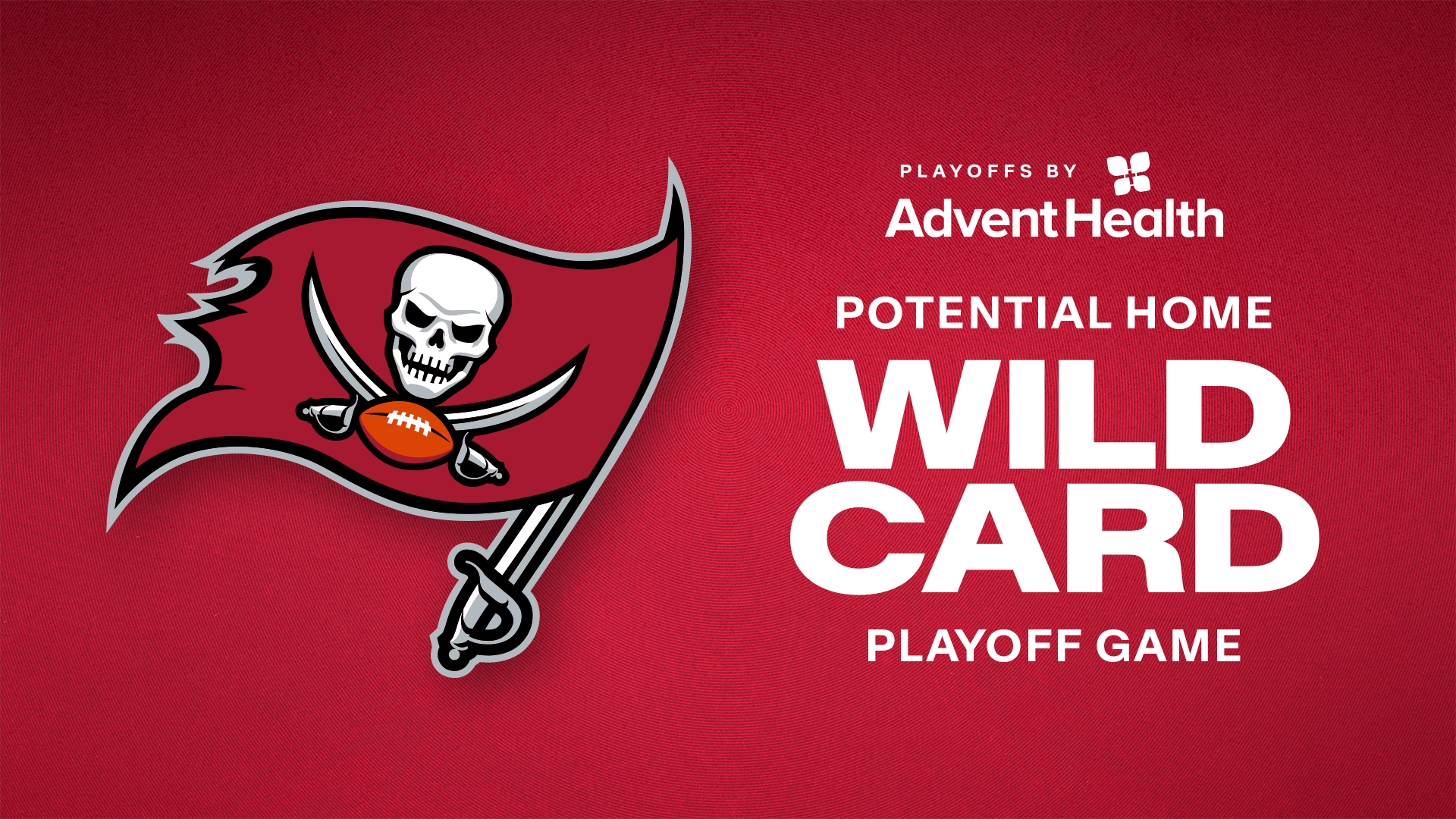For most NFL teams, in most in-season weeks, Tuesday is the player's day off. It's a chance to rest, regroup and – win or lose the previous weekend – turn the page to the next opponent.
It's also a perfect time for us to discuss the hottest topics surrounding the Tampa Bay Buccaneers. And for that reason, the One Buc Mailbag is back! Every Tuesday, I'll be fielding a handful of questions from the fans, but you can send them in all throughout the week. The easiest way is to hit me up on Twitter (@ScottSBucs, using #BucsMailbag), but if 140 characters aren't quite enough to get your point across, you can also send an email to tbbsocial@buccaneers.nfl.com.
This week, we discuss quarterback depth strategies in the wake of Jameis Winston's shoulder injury, in-game strategy decisions during a comeback attempt and the strength of the NFC South. Let's get to it.
1. Backup to the Backup?
Good question, Maxwell, and one for which the Buccaneers were prepared. The Bucs have contingency plans for every spot on the depth chart, but it's admittedly a little more tricky at a position where you only have two players.
Like many teams in the NFL have done since the "inactive third QB" rule was eliminated in 2011, the Buccaneers went into this season with only two quarterbacks on the active roster. With only 53 spots to go around, it can be hard to justify using one on a third quarterback who never sees the field. That spot can go to a special teams ace or a return man or an extra defensive end for the pass-rush rotation. The Buccaneers actually spent the last two seasons with three QBs on the roster because they had Mike Glennon as the number two behind Jameis Winston but they still wanted to hold onto Ryan Griffin as a potential long-term backup to Winston after Glennon's inevitable departure.
Pictures of some of the Bills' top players.

RB LeSean McCoy
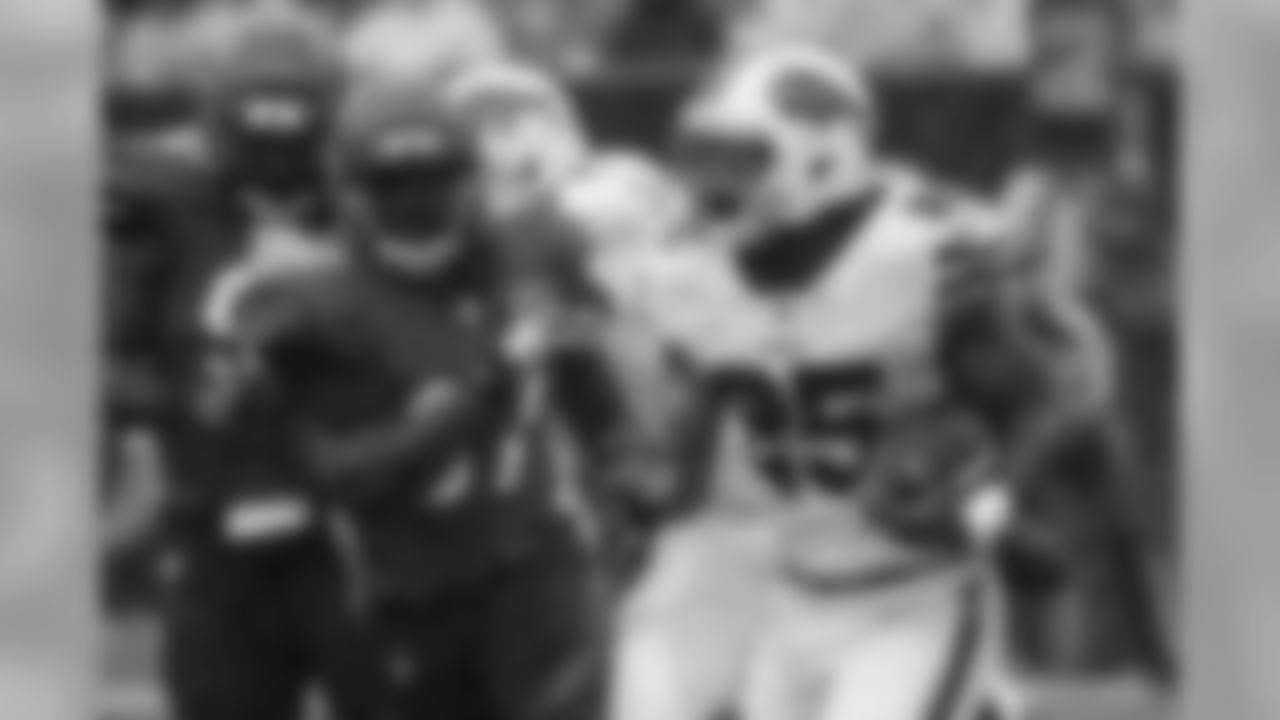
RB LeSean McCoy

RB LeSean McCoy
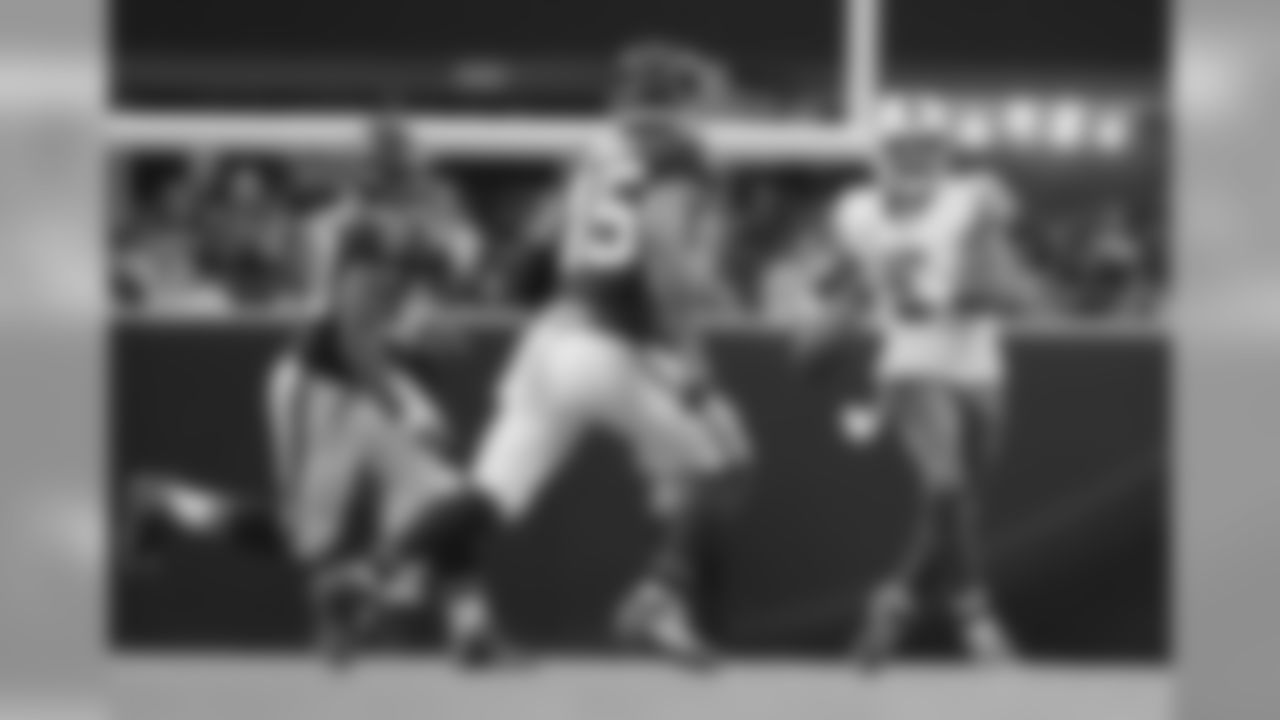
QB Tyrod Taylor

QB Tyrod Taylor
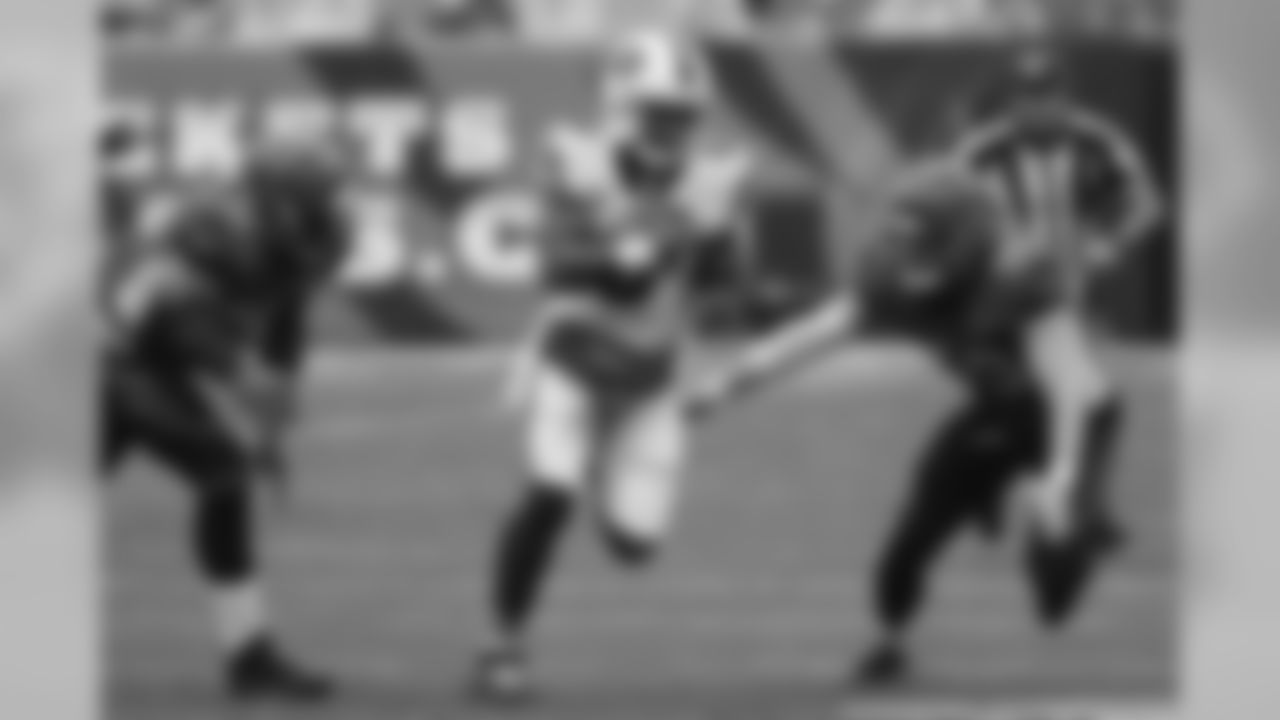
QB Tyrod Taylor
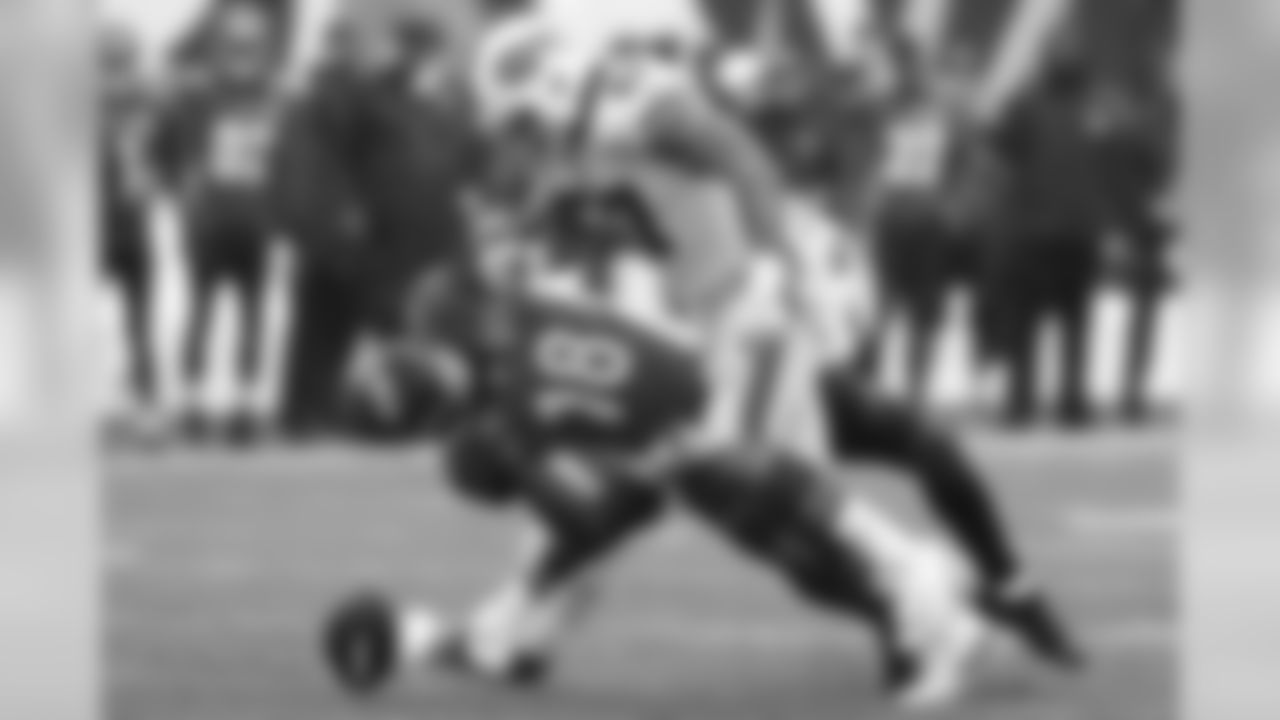
LB Lorenzo Alexander
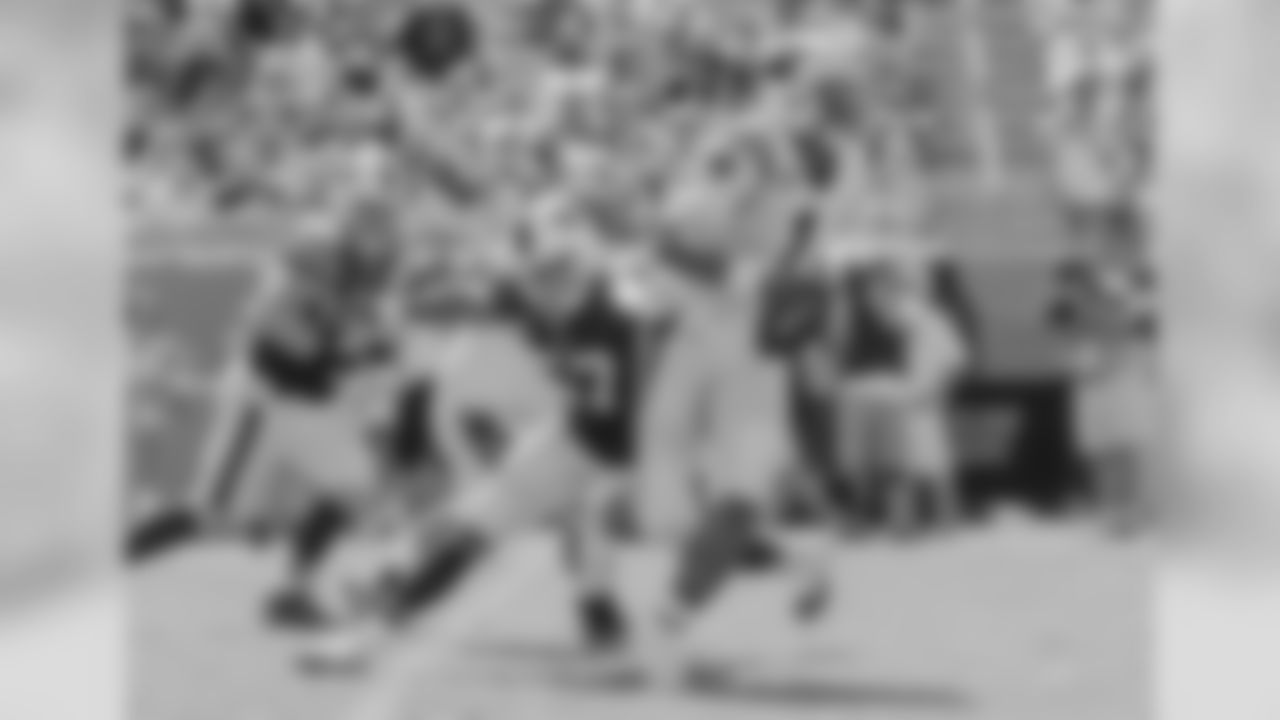
LB Lorenzo Alexander

LB Lorenzo Alexander
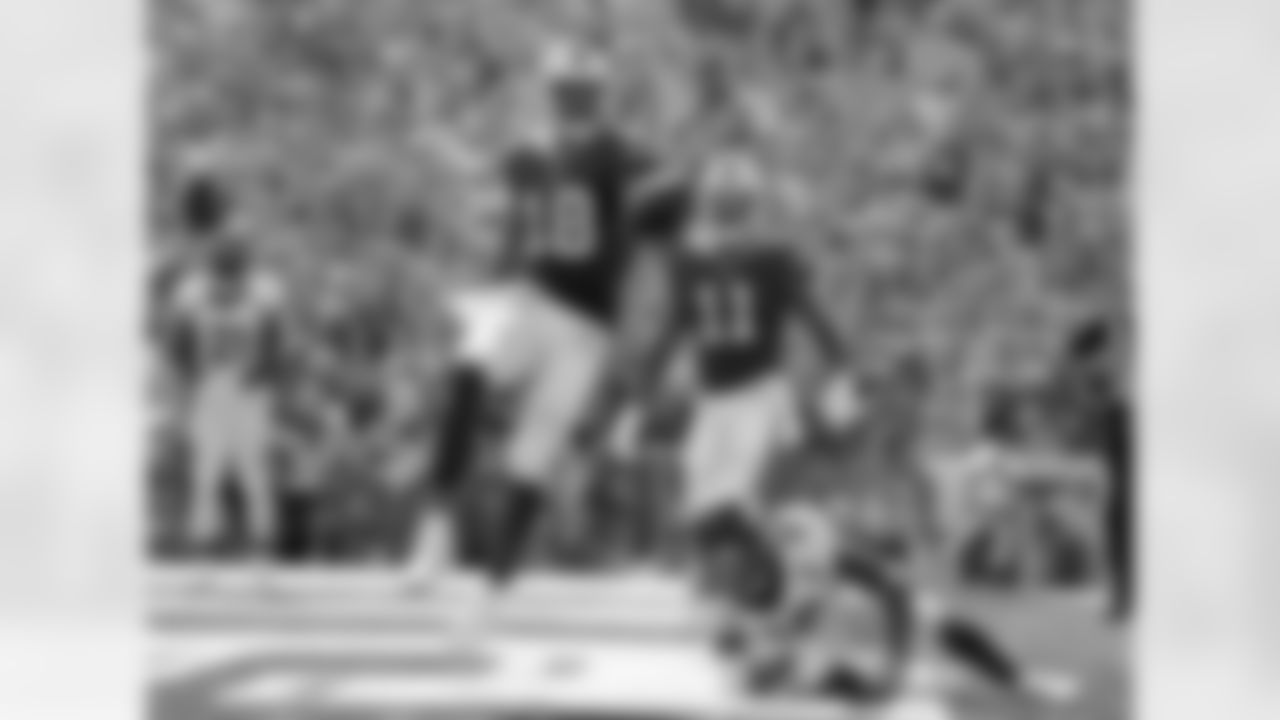
WR Andre Holmes

WR Andre Holmes

WR Andre Holmes

CB E.J. Gaines
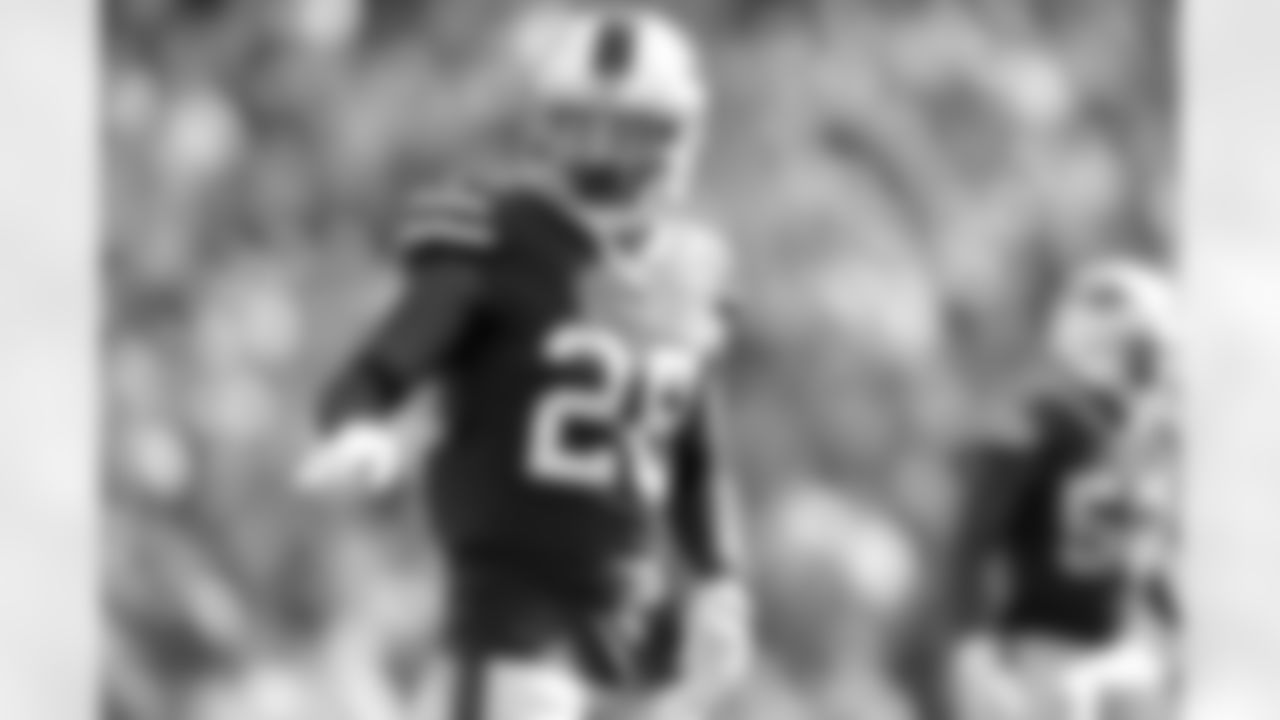
CB E.J. Gaines

CB E.J. Gaines

S Micah Hyde
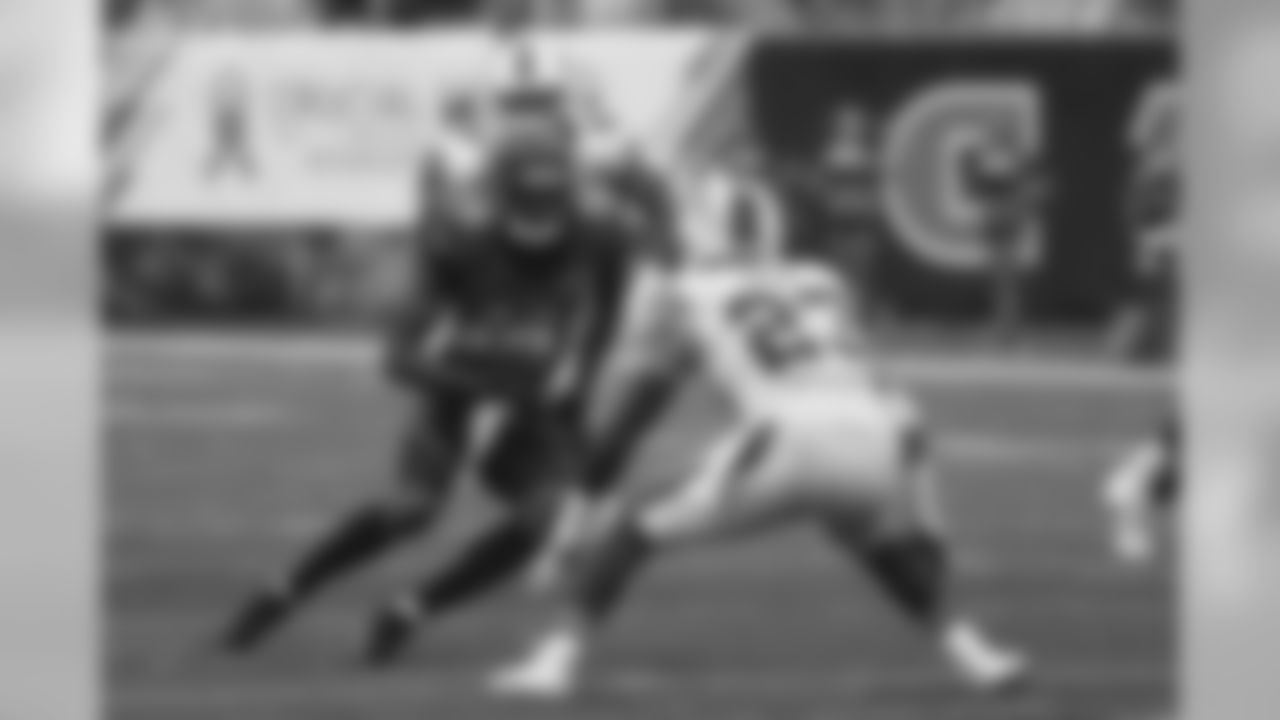
S Micah Hyde

S Micah Hyde

DT Marcell Dareus
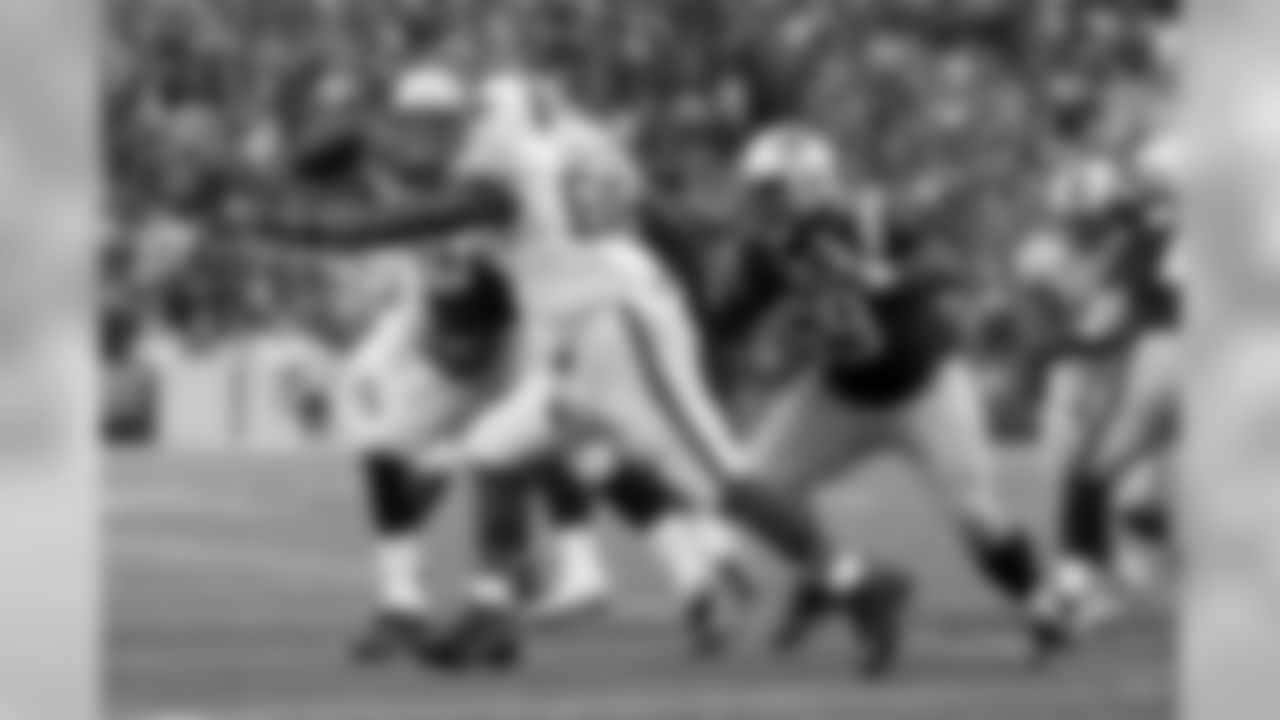
DT Marcell Dareus
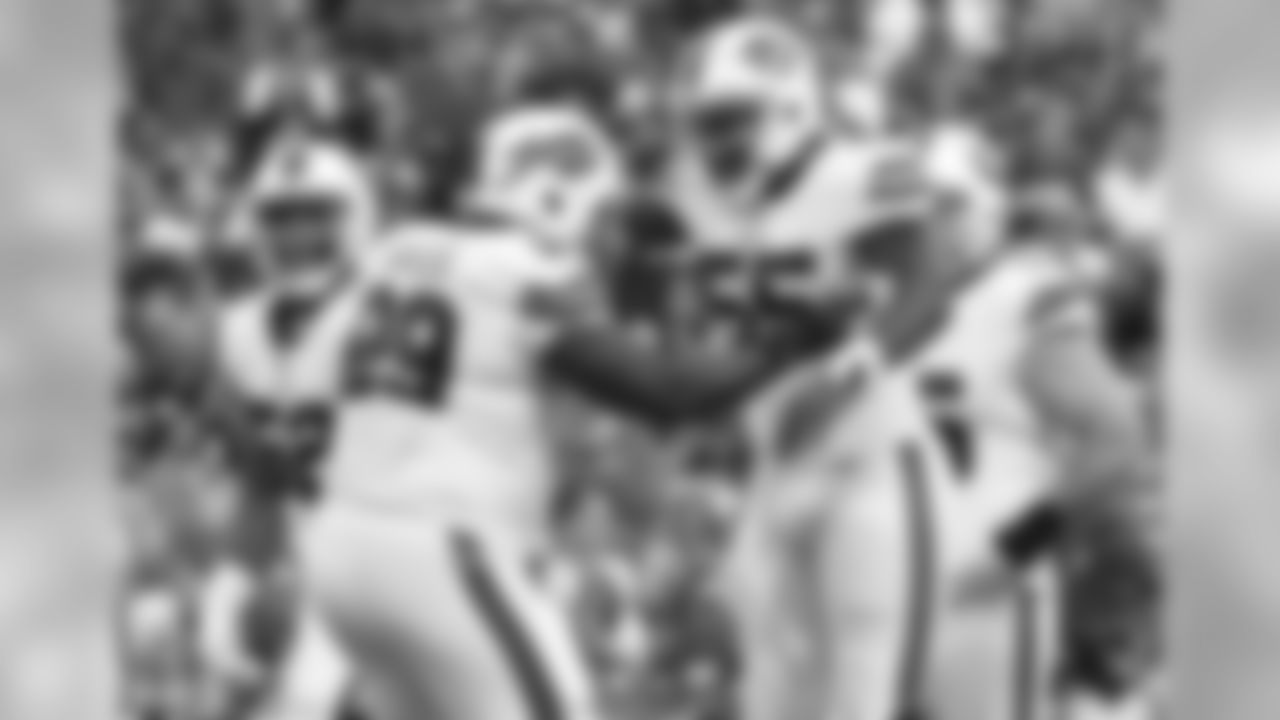
DT Marcell Dareus
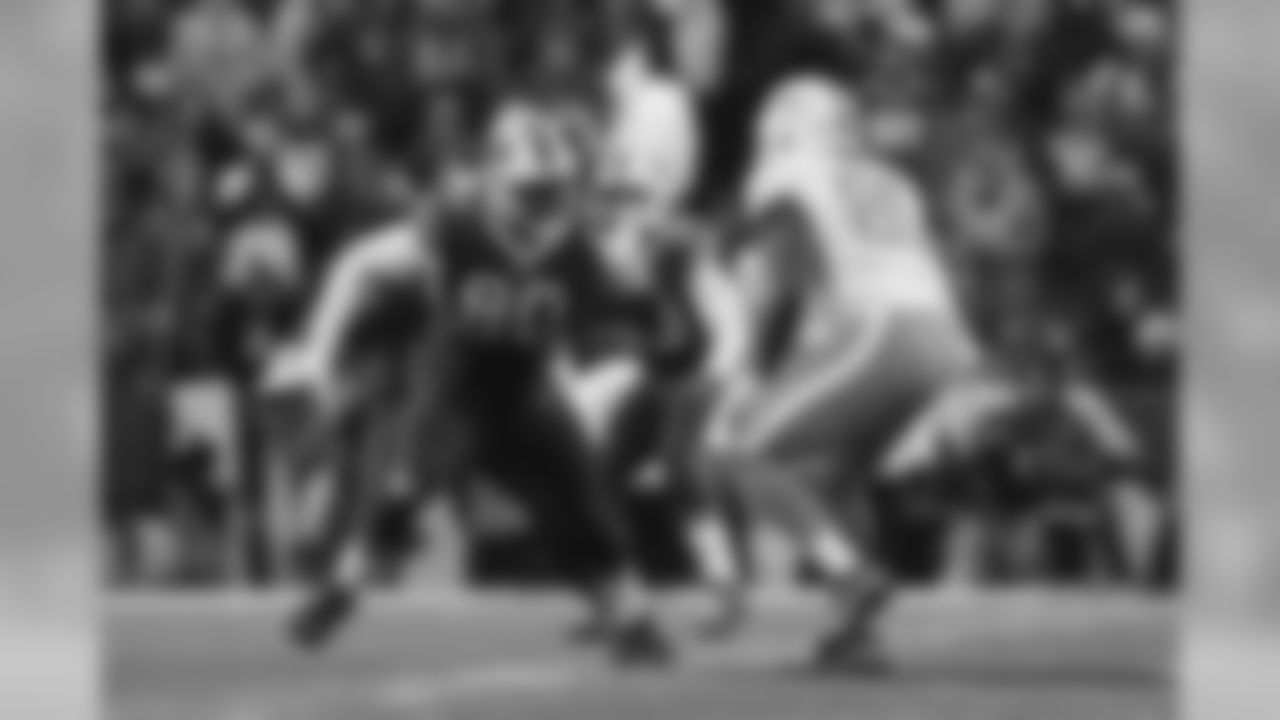
DE Shaq Lawson
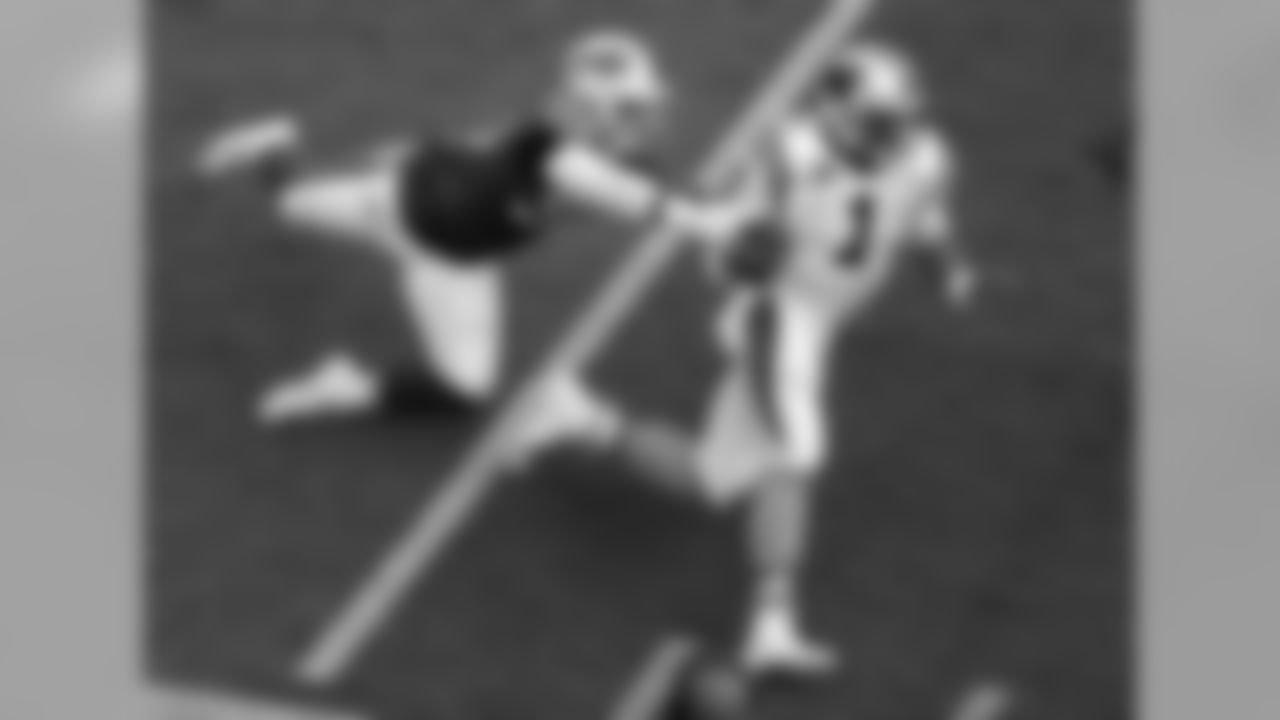
DE Shaq Lawson
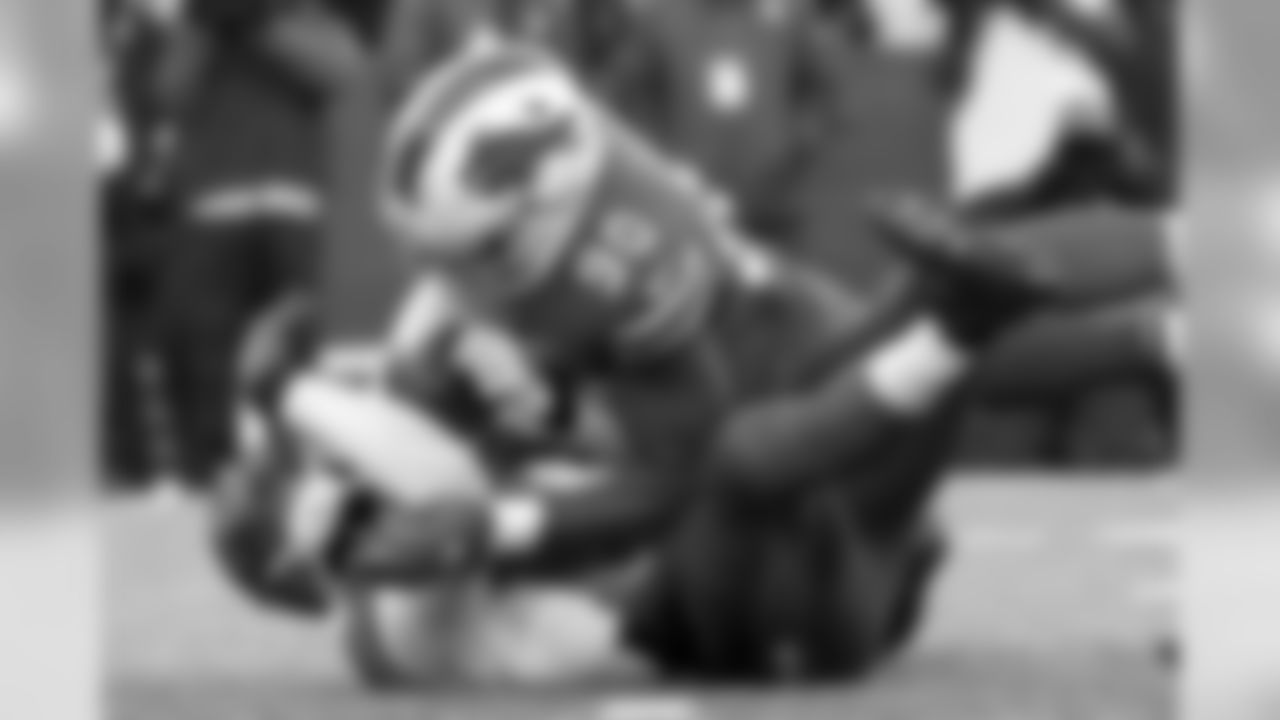
DE Shaq Lawson
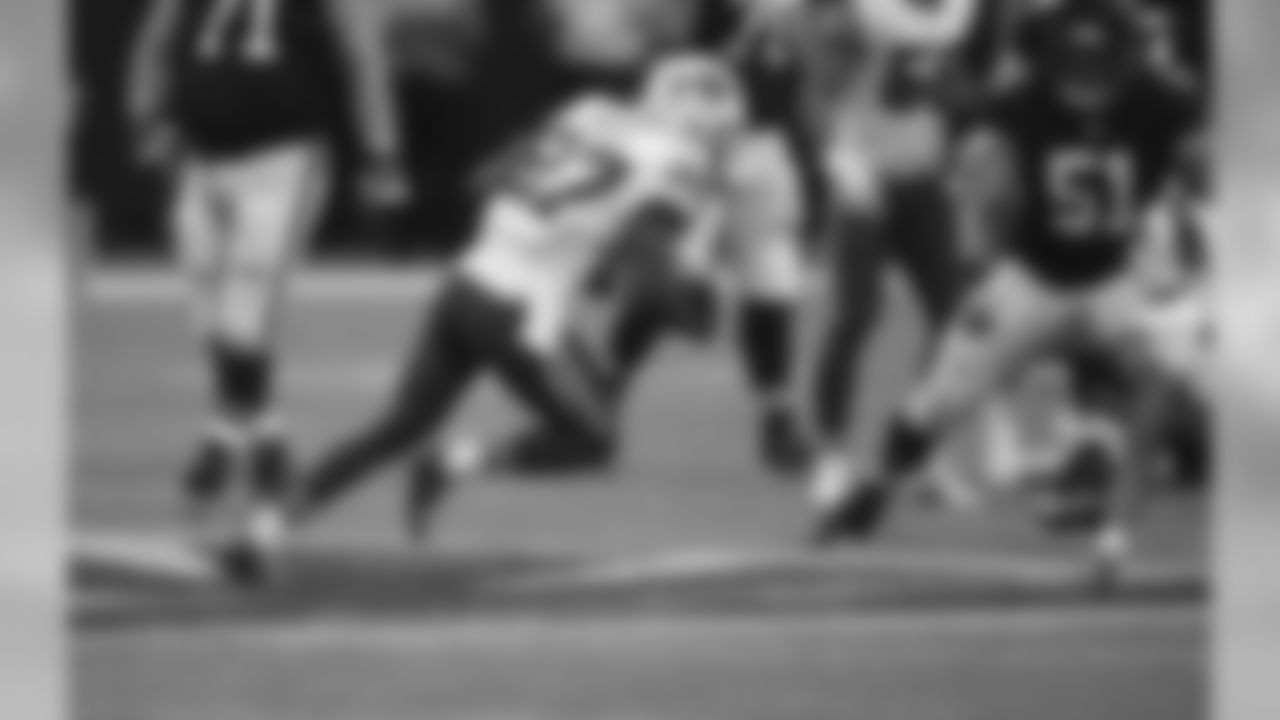
CB Tre'Davious White

CB Tre'Davious White

CB Tre'Davious White
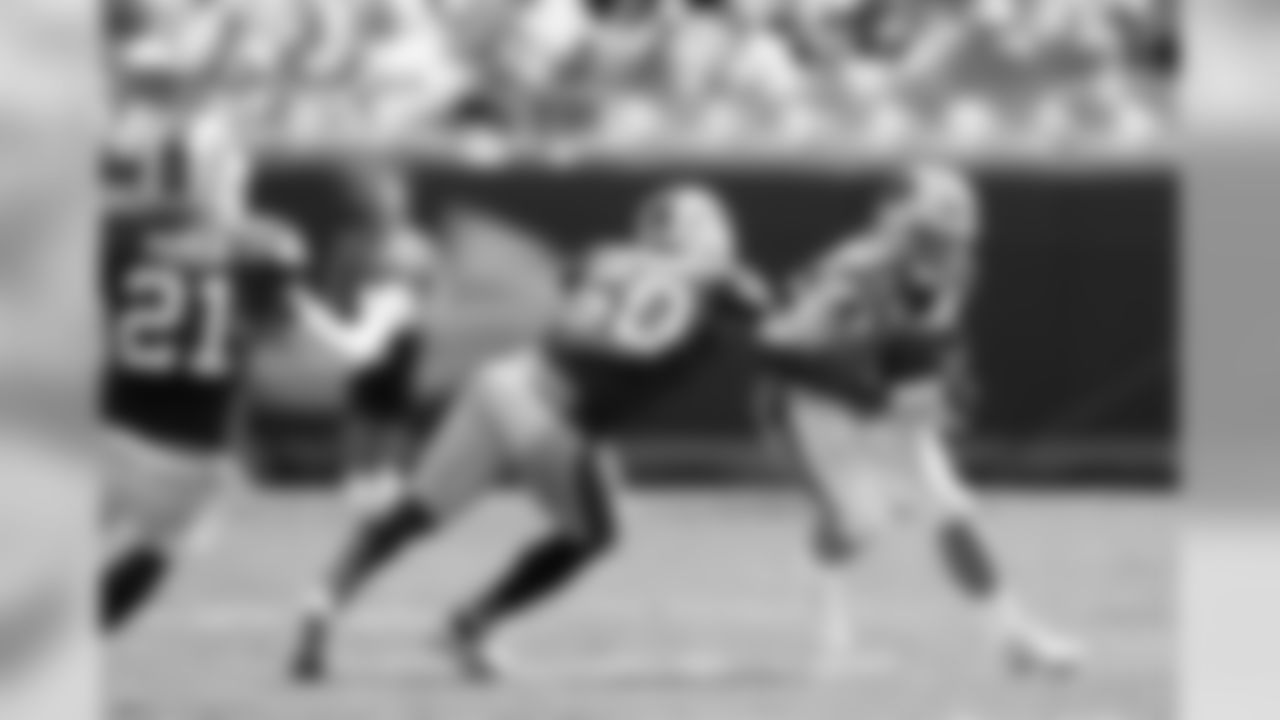
LB Ramon Humber
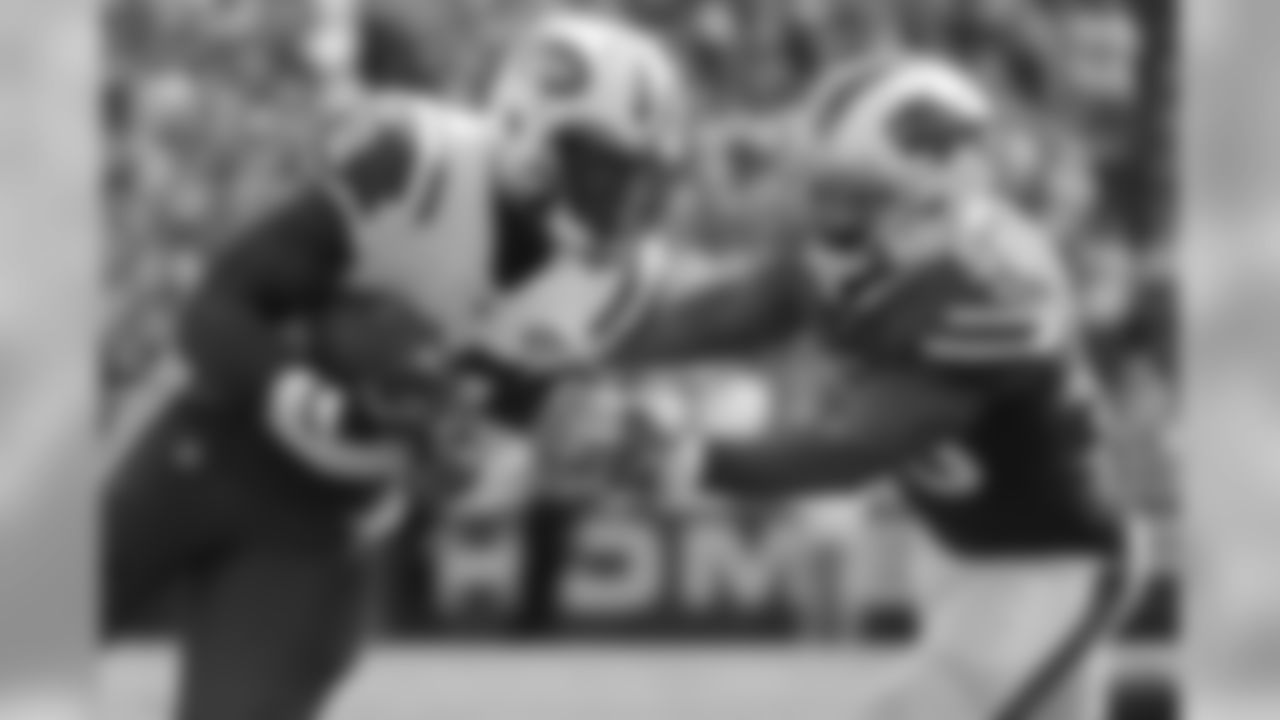
LB Ramon Humber
Speaking of Griffin, he won't be the answer to your question, Maxwell, but he is actually proving useful in the Bucs' current situation. Winston isn't expected to throw much this week after suffering a right shoulder injury in Arizona, which means Ryan Fitzpatrick is going to take most of the first-team snaps in practice. Fitzpatrick has been running the scout team against the first-team defense during practice while Griffin has been recovering from his own shoulder injury suffered in the preseason. Griffin is currently on injured reserve but, in a nice bit of timing for the Buccaneers, this is the week that he is eligible to start practicing again in anticipation of a potential return from IR after Week Eight. So Griffin can run the scout team and the Bucs don't need to bring in an extra quarterback for that job.
But what you want to know is what is going to happen on Sunday. First, it's important to note that Winston has not been ruled out for the game yet. He said after the Arizona game that he didn't think he'd miss another outing, but that remains to be seen. The Buccaneers will take it easy on him this week and then see if by the weekend he is capable of throwing with enough velocity to succeed in a game. That was the problem on Sunday in Arizona, the reason why the ultra-competitive Winston agreed he had to come out of the game; he couldn't drive his passes as usual.
However, your question presupposes that Fitzpatrick will be starting, so let's examine the situation from that potential outcome. If Winston is close to being ready but deemed not quite back to normal, then he could conceivably still serve as the backup if Fitzpatrick starts. The team could decide that 80 or 90% of Jameis Winston is as good as any other option they could have ready by Sunday.
If Winston is deemed not ready to be the backup on Sunday, then things get a bit more complicated. To answer the second half of your question, the Buccaneers' emergency quarterback is wide receiver Adam Humphries. Humphries was one of those do-everything stars at Dorman High School in Spartanburg, playing receiver, running back, quarterback, safety, cornerback and kick returner. In any given game, if both of the Buccaneers' active QBs were knocked out of action, Humphries would be the one to go under center and try to give the offense at least some chance to move the ball.
That said, if the Buccaneers determine early enough that Winston is not going to be a go on Sunday, I would suspect they would bring in another quarterback to add to the active roster before the game. If Fitzpatrick started but was knocked out early, the team wouldn't want to play an extended time with Humphries as the quarterback. Who will that be? There's no point in speculating this early in the week, and I suspect the Buccaneers are fervently hoping it doesn't come to that. The problem with adding another quarterback to the roster is that it will require the team to release a player at another position, and I'm sure they would like to avoid having to do that.
2. Scott-
That game on Sunday was frustrating. I know the Bucs made a big comeback and managed to make it close at the end, but I can't help but feel that they left some points on the board that could have made the comeback complete. We coulda kikced a field goal at the of the first half – that's three points. And then we ended up getting five touchdowns. Kick an extra point after each one and that's 35 points, plus the field goal is 38. 38-38. Should we have just played it straight and taken all the easy kicking points and had a better shot at the end? I still believe in the team and I admit they tried hard to comeback. I just wonder if we could have come away from that one with a W.
- Still think we're making the playoffs if we can get everyone healthy…Mark Reed, Brandon(via email to tbbsocial@buccaneers.nfl.com)
No, I personally reject this line of thinking completely. I heard it a lot on the day of the game and then immediately afterward, although to be fair, most of the people I heard bring it up were merely discussing it and didn't seem too adamant about it. I didn't agree with it then and I don't agree with it now.
For starters, your scenario assumes that Pat Murray would have made all of those kicks. Now, given that the field goal at the end of the half would have been a short one, followed by five extra points, I actually agree with that. I think Murray would have made them all, too, but we can't automatically assume that.
But that's not really my argument with the scenario described above. My argument is that you can't go back after the fact and reconstruct the game with different decisions based on what you already know happened. As this game was going on, Head Coach Dirk Koetter had to base each of his decisions on what the situation was at the time, and in his estimation the Buccaneers needed to maximize every scoring opportunity.
The Bucs were down 24-0 when they chose to go for the touchdown on fourth-and-goal at the end of the half. They were down 31-0 when they scored their first touchdown in the third quarter and elected to go for two. Do you know how many times an NFL team has ever come back to win after being down by 24 points at any point in a game? 23 times. The Bucs have never done it. Do you know how many times an NFL team has ever come back to win after being down by 31 points? Once.
In other words, it's going to take something extraordinary for that kind of comeback to happen. It is perfectly logical – and I would even say the smarter way to approach it – to think that you're going to need a touchdown there at the end of the half to have a chance. It is perfectly reasonable to believe you're going to need eight points per touchdown to have a chance. When the Buccaneers were down 31-0 in the third quarter, they could look at it like they needed four touchdowns and a field goal to tie, assuming Arizona never scored again. Or they could think, if we can get four touchdowns, and we get two-point conversions after three of them, we can tie without needing that fifth score.
And, in a way, wasn't that initial thinking right? The Buccaneers did only score four more times on offense; they just happened to get a little help from the defense thanks to Lavonte David's fumble return for a touchdown. It came down to an onside kick try with two minutes to go. That's a low-percentage play and it didn't work out for the Buccaneers, but at least they had a shot.
Listen, I don't think there's a perfect way to play a 0-31 deficit. Coach Koetter made the decisions that were best at the time, and the team did what they could to make them add up to a historic comeback but, unsurprisingly, it wasn't enough.
3. Mr. Smith,
Why is the nfc south always so good? I thought this was going to be the Bucs' year and they would only have to get better than Atlanta, which was (is) certainly possible. Carolina was down last year and it seemed like New Orleans was going in the wrong direction. But here we are again and Carolina's back on the top, Atlanta's still good and New Orleans is better than expected (at least better than I expected). Meanwhile the nfc east doesn't seem as good as everyone thought it would be and I think the Bucs would run away with the AFC South. Doesn't seem fair. :)
- Layna M., Bucs fan in Miami (via email to tbbsocial@buccaneers.nfl.com)
It sure feels that way, doesn't it? Couldn't the Saints or Panthers just be terrible for a year or two. The Buccaneers are trying to get over the hump and end their turnover drought, but it always seems like they have to climb over two or three teams instead of one.
However, I think you and I are being a little melodramatic here, Layna. First of all, the division with the best combined record in the NFL right now is the AFC East, with a .591 winning percentage (13-9). The NFC South is second on the list, at .571 (12-9), but the NFC North is right behind at .542 (13-11). Really, the two divisions who look the worst right now are there because they happen to have one really struggling team. The AFC North is at .391 thanks largely to the 0-6 Cleveland Browns, while the NFC West is at .435 because the San Francisco 49ers are also 0-6. I guess you could say that the Bucs haven't been fortunate enough to be in a division with a team that has bottomed out for a couple years running, like the current Browns or St. Louis near the end of the last decade. But overall, the NFC South hasn't always been a juggernaut.
Yes, the last two NFC Super Bowl teams came from our division. However, as recently as 2014 the NFC South was won by the 7-8-1 Carolina Panthers. In 2012, the Falcons had a great season but no other team in the South finished above .500. The last time the Bucs made the playoffs, in 2007, they won the division with a 9-7 record.
These things are cyclical. In fact, that was what this division was known for during its first decade or so of existence. The NFC South came into existence during the 2002 realignment. Every year from 2003-09, except for 2008, the division was won by the team that finished last the year before. And 2008 was barely an exception because the Falcons went from 4-12 in 2007 to 1105 in 2008, making the playoffs but losing the division to Carolina by one game.
Over the last decade, the team with the best record in the NFC has been Green Bay, which plays in the NFC North. Dallas, in the NFC East, is second. The Buccaneers' three division opponents have the third (New Orleans), fifth (Atlanta) and ninth-best (Carolina) records in the conference in that span. Washington might have a bigger complaint; their three division foes are second (Dallas), sixth (N.Y. Giants) and eighth (Philadelphia).
When it comes down to it, the Buccaneers can't really worry about how good or bad the rest of their division. Their goal is the Super Bowl, and to achieve that they're going to need to be good enough to beat any team in the league. As long as the NFC South is populated with quarterbacks Cam Newton, Matt Ryan, Drew Brees and Jameis Winston, it's probably never going to be smooth sailing for any team in the division, but that's just the way it is.
















